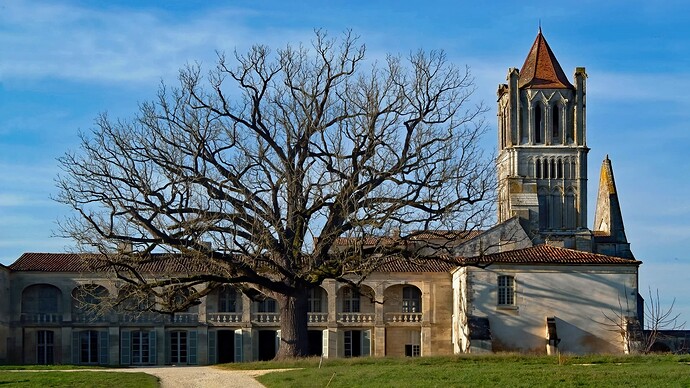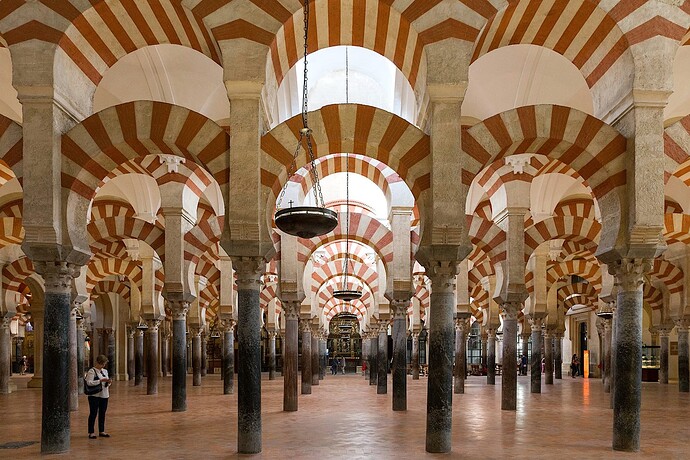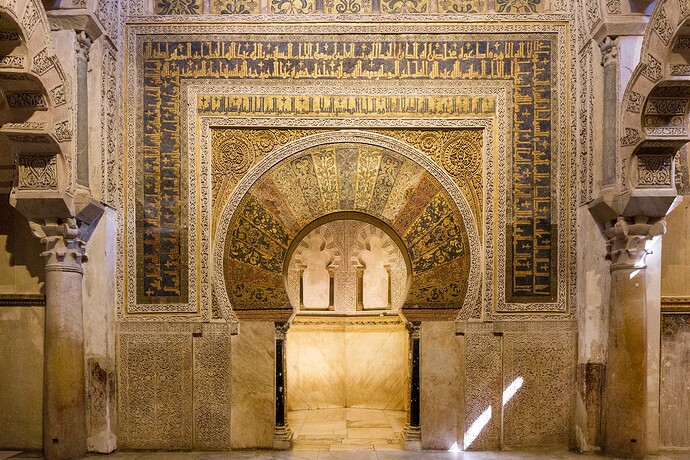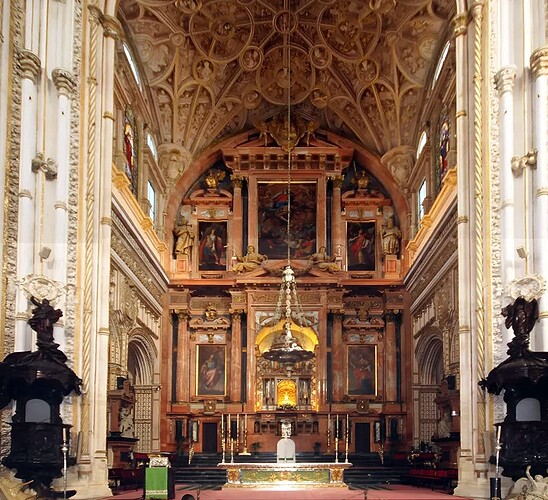Well, that’s why I explicitly mentioned the context!
It’s not just religious services though, ‘le culte’ only specifically means religious service for protestants, it means a wider set of things for other people. Protestants are evaluated (I’d say it’s a guess!) as about 3% of the population.
So for most eople culte’ doesn’t necessarily specifically mean a religious service.
eg the little shrines in front of Eurasia in Bordeaux are called maison de culte too.
My favourite local culte ie. the most interesting, is that of the Black Virgin, which is an interesting link between early Christian iconography of the enthroned Virgin and Child and that of the black skinned Isis seated with the infant horus on her lap (Isis had black skin because she was a fertility goddess and her skin was the colour of the Nile’s fertile mud’.
Mary also inherited many of Isis’s titles and attributes, Stella Maris is a good example. as Isis had been a protectress of sailors and one can see this conflation in the chapel at Rocamadour and in the annual procession of sailors where the statue is taken to the river, just like the annual procession in ancient Egypt when Isis’s statue was take down to the Nile.
I love these sorts of ancient-inter-cultural resonances
@DrMarkH
Yes and look at Mithras! ![]() And more pertinently have you been to Saintes Maries de la Mer? Well worth it
And more pertinently have you been to Saintes Maries de la Mer? Well worth it ![]()
Thanks,
I haven’t, but we do want to go back to that stretch of coast.
A few years ago, whilst staying at Golfe Juan, we stumbled across an amazing chapel on the top of Cap d’Antibes which contained hundreds of ex-voto offerings or prayers of thanks to Stella Maris in the form of model ships and paintings, thanking her for having been saved during storms at sea. One of the most unexpected aspects was that in addition to a couple of centuries of thanks from local fishermen etc, there were a couple from owners or captains of large luxury yachts.
I think I’ve been there, my great grandparents lived in Cap d’Ail not far away. If you go to St Tropez which is legally a fishing village, not a resort ( and it’s my home town ) there is the church which is v nice but up on the hill there is the Chapelle ste Anne which is full of little votive paintings of boats in storms sometimes with divine radiance or flying Ste Anne in the sky saving them etc. V nice.
Couldn’t remember the name of this abbey which I photo’d more than 20 years ago. I’m not religious but I find the photo quite uplifting when I switch on the computer each morning – it’s one of my computer-monitor desktop images.
Pasting it into Google-image-search resulted in lovely overhead video views of Sablonceaux Abbey, in peaceful silence.
When I was there the abbey looked well-kept but lifeless and empty. Their website shows it now as being a welcoming spiritual retreat.
Despite being non-religious I remember how quiet and peaceful it is sitting in a church, maybe listening to a choir or organ music. You don’t have to believe to appreciate other inner & outer qualities of a religious building, IMO, and it’s free!
I completely agree, though your post made me recall the interior of the Mosque-Cathedral in Córdoba, which always reminds me of a bus station. Maybe sometimes, in order to appreciate art, we need a degree of shared culture?
But it’s great to be able to sit peacefully in a church building. Perhaps such a building offers something more than, say, a château?
I agree.
^ this.
In England and Wales there is the additional requirement to be married in a venue licensed for marriages - and it has to be actual structure not just a place. Hence why I have photographed tons of weddings that took place in gazebos in the gardens of country hotels or wedding venues! The guests can be outside but the couple have to be under a roof!
There have been various moves to change this (in Scotland you can get married anywhere you like - my friend Lynne Kennedy photographs lots of weddings in driving rain on hillsides in Skye!) but it hasn’t happened yet.
In Turks & Caicos we photographed weddings on the beach more often than not - the requirement was the presence of an officiant (usually a baptist minister but there was one JP who also did weddings) and as @George1 said, the necessary paperwork!
One other oddity about the UK system is that if you want to get married in a cathedral (which is not usually a parish church) you have to get a special license from the Archbish of Canterbury! Also you normally have to have some specific connection with the place. e.g. friend of mine got married in Guildford Cathedral but that was OK because he had been a chorister there.
ETA: Oops just realised how old this thread is! ![]()
I imagine you’re referring to the hypostyle stripey arches of the former prayer hall. The intention was to create a sensation of infinite space. Some 'bus station!..
However it’s interesting to compare the focal point of worship, the mihrab below with the building’s early baroque high altar, which is comparatively restrained for a Spanish cathedral…
.Interesting also to compare Cordoba with Seville’s huge cathedral, which had also been a mosque, but doesn’t feel as exotically hybridised, being configured more like a conventional cathedral, albeit with fifty-two (?) side chapels.
Vaguely related Chris ISTR when I worked at Harrods lots of people working there with local connections and I think someone said members of the (Royal) Household Cavalry, whose barracks is practically adjacent in Hyde Park, and I think the Guards, have the rigbt be be married in Westminster Cathedral although I think it’s within the Cathedral complex but might be a smaller Church. Bit of a perk.
Yes it’s usually seen as such I think.
Although if I ever get married (unlikely!) it will be in a Mairie or registry office. ![]()
Nevet too late, Chris.
My grsndfather (re)married at age 92.
We got married in a restaurant.
Wonder if they’d have to be Catholics?
I drove past the local Termoin Jehova hall last night while one of their bi-weekly meetings was in progress. I doubt its interior is particularly ornate as the outside looks as though it’s an old water company building or something like that. An odd angular building in perfect condition with beautifully kept gardens. If they’re an example of religion in C21st France all is well, the car park was overflowing.
If the Jehovah’s Witnesses are thriving, I hardly think ‘all is well’ as it’s a highly anti-social religion with numerous proscriptions, some of which, like the ban on blood transfusions, are down right dangerous.
'The following list of 141 rules was written for people who want to quickly know what JW’s can’t to. The rules were compiled by former members who lived by these rules at one time.
(https://cbncray.wordpress.com/wp-content/uploads/2012/05/141-rules.pdf)
I presume the list of what they can do is very short!
Back in the 80s they built a regional centre for the east pennines area.
A small team of JWs worked on the project during the week and at the weekends the carpark was packed with cars of JW tradesman compelled to give up their weekend for their belief.
A spin off was a local building company run and staffed by JWs. I tendered against them on a few occasions.
My brother received a blood transfusion soon after birth and as a result has currently enjoyed 65 years of life.
My father always told them where to go when they came calling, I wonder why.
Do you really think I wasn’t aware of all of that? I have no more time for them than I do for most other organised religions. Yet again I make a real life observation and you have to respond in a superior and patronising manner. Bizarre.



